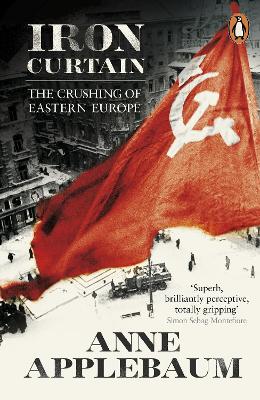Reviewed by Michael @ Knowledge Lost on
First of all, I would like to say, as a fan of the Soviet Union I do have a bias view point. I do not agree with Stalinism but I thought Lenin had some very good ideas. The Soviet Union was a political experiment that did not turn out the way it should have. I have a decent understanding of the history of the Soviet Union (though I am continuing to learn), I did not know much about the effects the USSR had on countries like Poland, Hungary and East Germany. This is where The Iron Curtain came in to fill in that knowledge gap.
I was a little worried going into this book, Anne Applebaum is an American author and there was a concern that this would turn into a propaganda piece. Applebaum does not pull any punches, she reports every gruesome detail but never in a way that felt anti-Soviet. In fact I was pleased to find out that a lot of the research came from the Moscow libraries. Having said this, I have not read anything else on this exact topic so I cannot compare or judge the accuracy of the information. But this is turned into a good overview of what turned into the rape and pillaging of these countries.
I am fascinated but the Soviet Union and its history and The Iron Curtain was a nice addition to add to my collection on the topic. I feel I have so much more to learn and am looking forward to dive in further. I do not think I can review this book well enough because I have no way to compare it. I did enjoy the book as I am interested in the topic but it often felt very dense.
This review originally appeared on my blog; http://www.knowledgelost.org/book-reviews/genre/non-fiction/iron-curtain-by-anne-applebaum/
Reading updates
- Started reading
- 29 November, 2015: Finished reading
- 29 November, 2015: Reviewed
